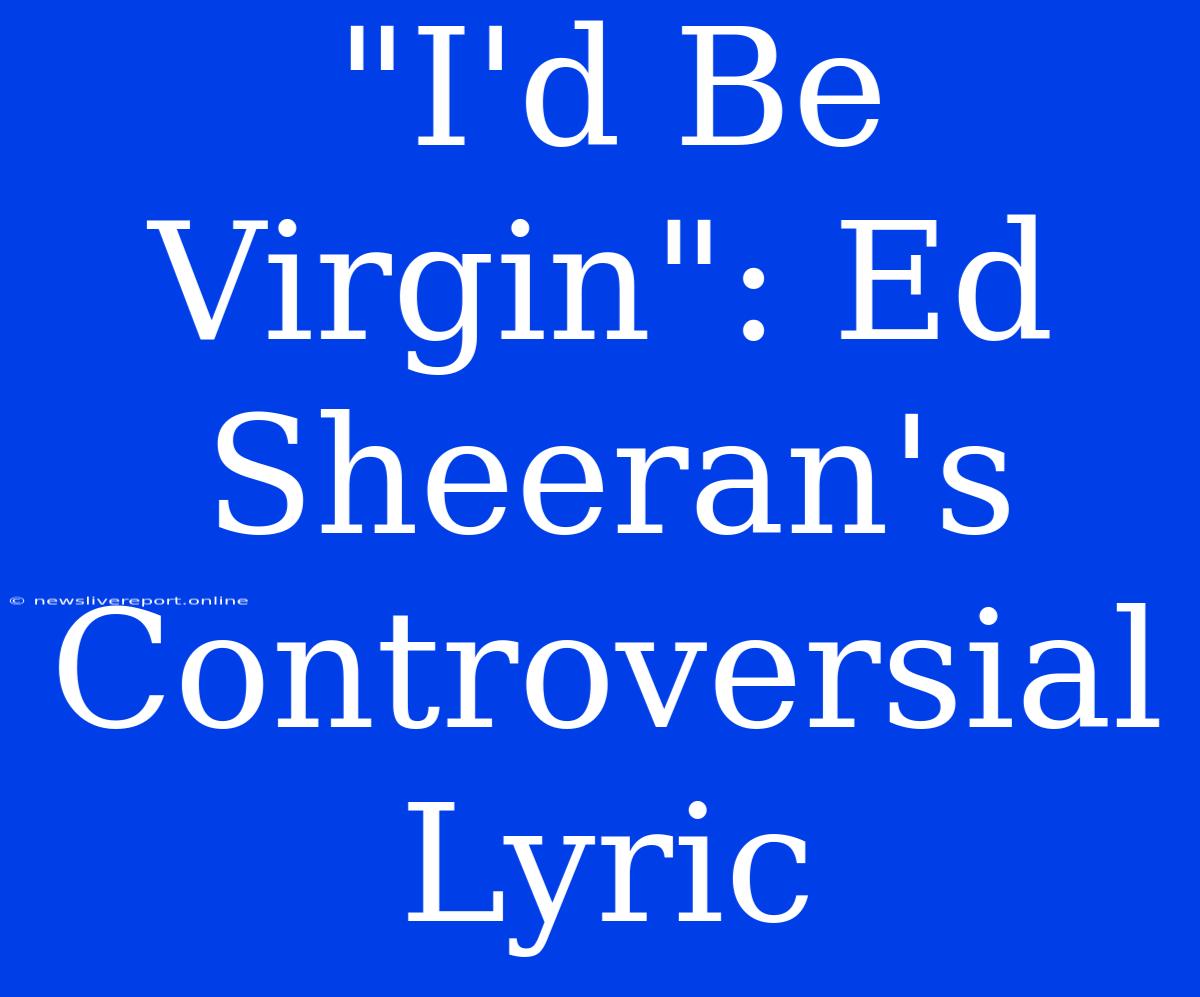"I'd Be Virgin": Ed Sheeran's Controversial Lyric Sparks Debate
Ed Sheeran, the British singer-songwriter known for his heartfelt ballads and relatable lyrics, recently sparked controversy with a line from his new song "Eyes Closed," released on March 3rd, 2023. The lyric in question: "I'd be a virgin, if it was you".
This seemingly innocuous statement has ignited a storm of criticism, with many accusing Sheeran of trivializing and romanticizing virginity, and even promoting a harmful double standard.
The Backlash and its Justification
The backlash against Sheeran's lyric stems from several key concerns:
1. Normalizing Toxic Beliefs: Critics argue that the lyric perpetuates the outdated idea that a woman's worth is tied to her sexual history. By suggesting that he would remain a virgin if his partner were the only person he slept with, Sheeran inadvertently implies that a woman's sexual history diminishes her value.
2. Unrealistic Expectations: "I'd Be Virgin" can be interpreted as a romantic gesture, but for many, it feels like an unrealistic expectation. It ignores the complex realities of relationships and individual choices, potentially setting up an unhealthy dynamic where one partner feels pressured to conform to an unrealistic ideal.
3. Double Standard: The lyric is also criticized for highlighting a stark double standard. While Sheeran's "virginity" is framed as a sacrifice, the same expectation isn't typically placed on women. This perpetuates the notion that men are entitled to explore their sexuality freely, while women are judged and penalized for their past experiences.
4. Dismissing Consent and Agency: The lyric seems to disregard the role of consent and agency in sexual experiences. By focusing solely on his own hypothetical "sacrifice," Sheeran neglects the fact that his partner's past experiences are equally important and should be respected.
Ed Sheeran's Response and the Ongoing Debate
So far, Ed Sheeran has not publicly addressed the controversy surrounding the lyric. The silence, however, has only intensified the debate.
Supporters of the lyric argue that it's simply a poetic expression of devotion and a way of showing deep love and commitment. They contend that the line should be taken within the context of the entire song, which explores themes of longing and sacrifice.
However, the criticism against the lyric persists, highlighting a broader issue of how our societal norms and expectations surrounding sex and relationships continue to impact the way we perceive and interpret language, even in music.
This ongoing debate raises vital questions about how we navigate the complexities of consent, respect, and agency in the context of romantic relationships. It also forces us to examine how seemingly innocuous lyrics can perpetuate harmful stereotypes and contribute to the normalization of unhealthy power dynamics.

